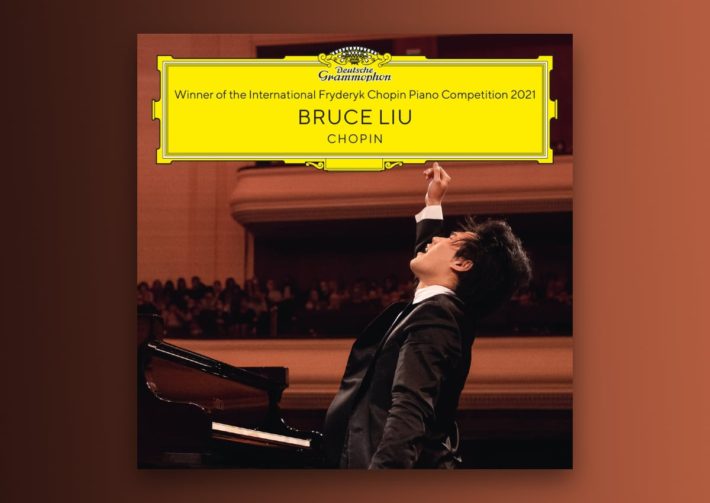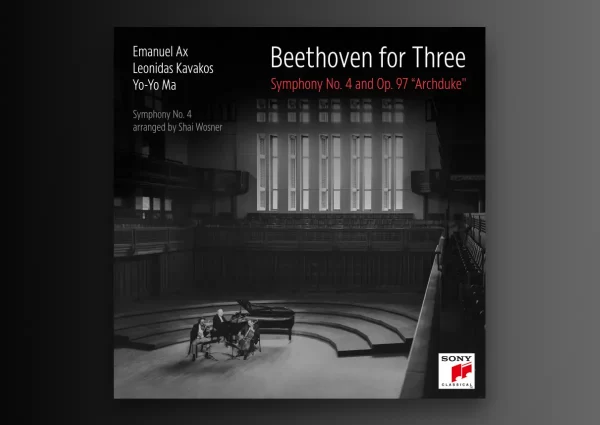These recordings of pianist Bruce Liu were taken from different stages of the 18th Chopin Competition in Warsaw, in which he was declared the winner.
The Andante Spianato (track 1) shows a pianist who’s willing to rely on mature artistic sensibilities as opposed to a mannered approach. There’s no staggering of melody and accompaniment to emphasize the bel canto, nor is there an excessive amount of rubato. Instead, an appropriately straightforward pace allows the lines to move and reveal their continuity naturally. Liu’s skillful changes in color, however, are what add refreshing gradients to the light and dark moments. The opening of the accompanying Polonaise sounds a little rushed and nervous where it could have benefited from greater emphasis (on that note, Jorge Bolet, in his Berlin radio recordings, has a nearly thunderous but definitely commanding introduction). Liu does find his footing immediately afterward, as what follows is a masterful example of balance: a buoyant gallop in the bass complements the jubilant but still lyrical treble. For all its elegance, the performance doesn’t back out from excitement, which Liu times perfectly: the finale, with its infectious energy, is exhilarating.
The two etude selections show an impeccable level of clarity, with the Op. 10 No. 4 (track 7) a standout. It’s obvious that Liu has both finesse and power readily available at his fingertips, but he makes sound musical decisions in when to use them. The sixteenth notes on their own might seem to have an almost dry quality. This, however, works perfectly given their speed and proximity; the result is a remarkable level of precision. Meanwhile, explosive crescendos deliver bursts of drama. While Liu may not have quite the electrifying rawness throughout that Pollini does in his 1970s recording, his rendition still does the needful in bringing out the work’s fiery character.
Related Posts
- Review: Chopin – Complete Nocturnes. – Jan Lisiecki
- Review: Louis Lortie Plays Chopin, Volume 6
- Review: Maurizio Pollini Plays Chopin Op. 55-58
Liu’s E major Scherzo is technically pristine. What makes the interpretation interesting, however, is how he eschews a merely playful approach. The phrases are imbued with flexibility; by taking a touch more time in certain places, the melody takes on an inquisitive, maybe even contemplative quality. While some might argue that this could stunt the momentum, it does just the opposite, serving as a sort of springboard by which he catapults into the runs. He also pays attention to subtleties, opting to bring out some of the secondary lines. For instance, listen at 2’31”-2’34” for the lovely inner voice that guides us back to the subsequent theme. For a comparison, fellow Chopin winner Seong-Jin Cho also recorded this Scherzo recently (see our review here). He’s a little more driven overall and plays upon the work’s virtuosity whereas Liu opts for a suave elegance. Despite the differences, both interpretations have much to offer, including impressive displays of fingerwork and good dynamic shading.
The sound engineering does well to bring out Liu’s defining characteristics: a conscientiousness to finer details matched by an effortless spontaneity. A part of me does wish that more long-form works (perhaps one of his Ballades or the final round E minor Concerto), had been included. Though these performances are available elsewhere, it would be nice to have them all in the same place.
Liu’s approach to Chopin might be less flashy than that of other performers out there, but what we get in return is so much more: his highly nuanced style speaks to many of the expressive dimensions the composer includes in each work. With this much musicianship already, there is no doubt that he has a very bright future ahead of him. In the meantime, we can only eagerly look forward to his future releases.

Chopin
Bruce Liu – Piano
Deutsche Grammophon, CD 4861555
Recommended Comparisons
Read more classical music reviews or visit The Classic Review Amazon store
Follow Us and Comment:
Get our periodic classical music newsletter with our recent reviews, news and beginners guides.
We respect your privacy.









